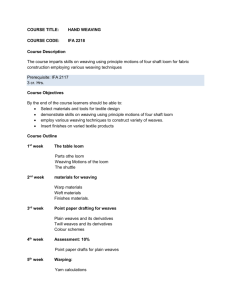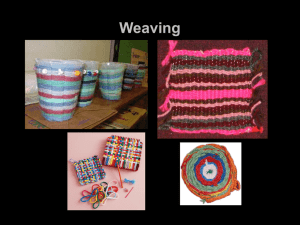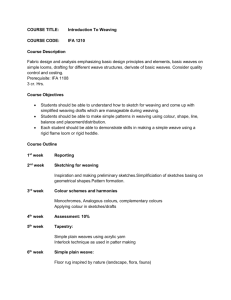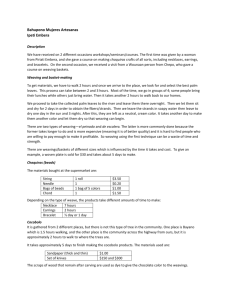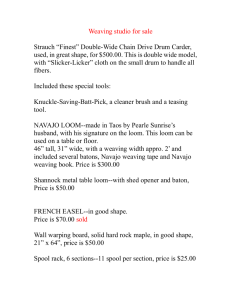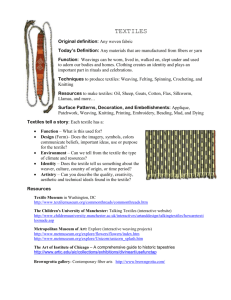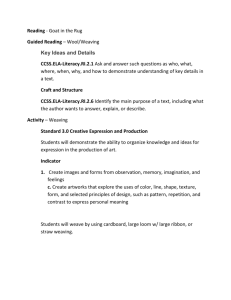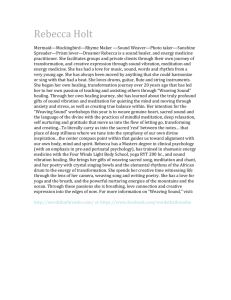IFA 3116 - Makerere University Courses
advertisement
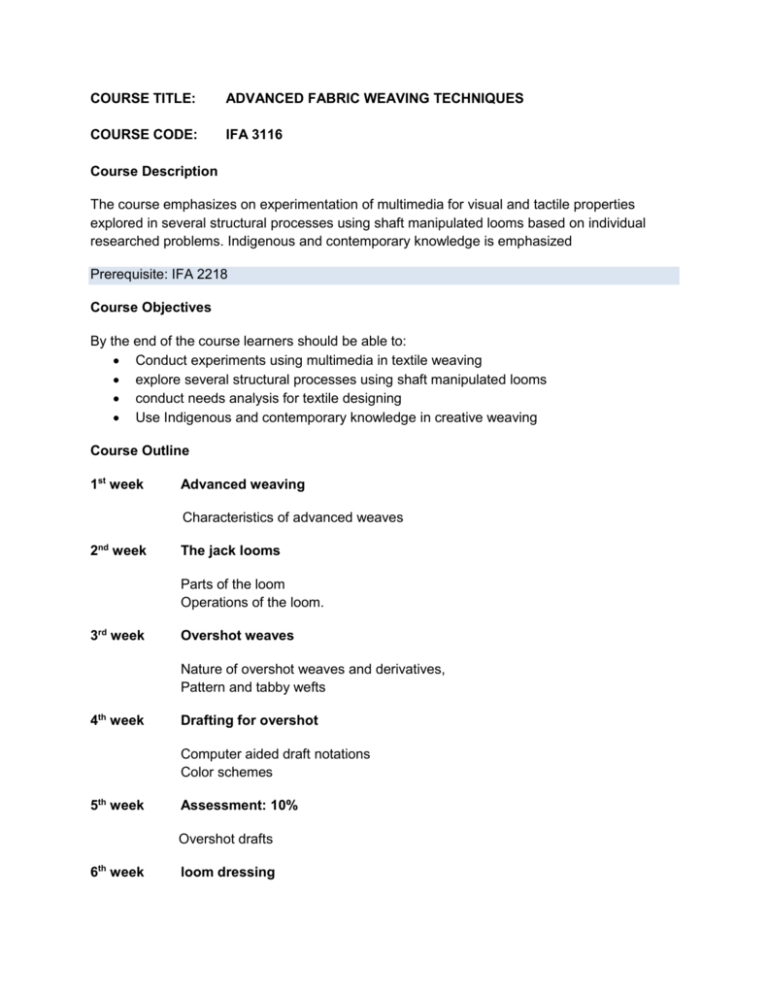
COURSE TITLE: ADVANCED FABRIC WEAVING TECHNIQUES COURSE CODE: IFA 3116 Course Description The course emphasizes on experimentation of multimedia for visual and tactile properties explored in several structural processes using shaft manipulated looms based on individual researched problems. Indigenous and contemporary knowledge is emphasized Prerequisite: IFA 2218 Course Objectives By the end of the course learners should be able to: Conduct experiments using multimedia in textile weaving explore several structural processes using shaft manipulated looms conduct needs analysis for textile designing Use Indigenous and contemporary knowledge in creative weaving Course Outline 1st week Advanced weaving Characteristics of advanced weaves 2nd week The jack looms Parts of the loom Operations of the loom. 3rd week Overshot weaves Nature of overshot weaves and derivatives, Pattern and tabby wefts 4th week Drafting for overshot Computer aided draft notations Color schemes 5th week Assessment: 10% Overshot drafts 6th week loom dressing Warping, beaming sleying and denting processes 7th week weaving overshot Production of overshot samples 8th Week Assessment: 10% Overshot samples 9th week Double weaves: Characteristics of double weaves Drafting 10th week Assessment: 10 Double weave drafts 11th week Weaving: Weaving of double weave samples 12th week Indigenous weaves Research into indigenous structural weave designs, Materials, tools, processes and function Colour schemes 13th week Contemporary Weaving Modern trends in textile art Incorporating indigenous ideas into contemporary weave designs 14th week General critic 10% 15th week University Exams begin 16th week 17th week Exams End of University Exams Learning outcomes The study of this course should lead to acquisition of skills in several structural processes using floor shaft manipulated looms. Various hand woven articles shall be woven both utilitarian and aesthetic purposes inspired by indigenous and contemporary knowledge Method of Teaching/Delivery Lecture methods Practical self studio work Demonstration and Guided studio work Mode of Assessment Course work 40% 4 critiques each marked out of 10% End of Examination: 60% Theory Examination Marked out of 20% Practical Examination Marked out of 40% Final Total Mark: 100% Reference: 1. McNamara, A. and Snelling, P. 1995, Design and Practice for Printed Textiles. Oxford University Press Australia, 2. Paine, Melanic, 1990, The Textile Art in Interior Design. London: Mitchell Beazley, 3. Norma Hollen and Jane Saddler, 1964, Textiles, Macmillan New York 4. Jonh Picton and John Mark,1989, british museum press, London 5. Janet Phillips, 1983,The Weavers book of fabric design, BT Batsford ,London 6. Jules Labarthe,1975, Elements of textiles , Macmillan ,New York
